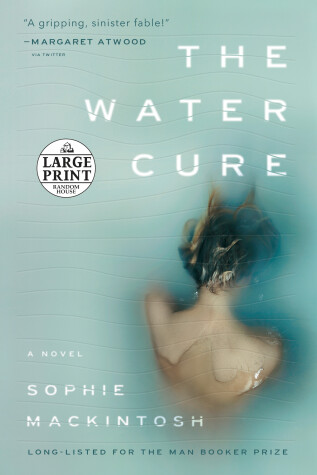Reviewed by clementine on
The premise is cool - that men are literally toxic to women, and that three sisters and their parents live on an island in order to maintain their health. It's a heavy-handed metaphor for the toxicity of patriarchy, to be sure, but Mackintosh does a little more with it by making us question whether or not what the sisters have been raised to believe is true. It's definitely true that their parents have physically, emotionally, and (it is suggested) sexually abused them for their whole lives. In adulthood, the sisters have very little emotional intelligence, and their relationships with one another are both hostile and codependent. The dynamic between Grace, Lia, and Sky is bizarre and creepy, probably the most compelling part of the book.
But I have a real problem with the way the differences between men and women are portrayed here. This is an incredibly essentialist take on patriarchy. This book presents men and women as fundamentally different, with men as naturally stronger and predisposed to violence and women as flimsy things that need to be removed from wider society in order to possibly survive. Towards the end of the book, one of the sisters muses, "... isn't that always like a woman, to want to drag every word and sentiment over and over through the wringer, until the meaning is gone. To over-process." Like... this is what we're calling a feminist text?
There is a lot that is deliberately left vague here - for example, it is implied that the world in general is toxic, perhaps due to some sort of environmental disaster. The circumstances of the family's self-imposed exile are never explored, nor is the reason for the collapse of the cult the parents ran for years. This can be an effective narrative technique, but in this case I felt that Mackintosh relied on this obfuscation to make the narrative and novel as a whole appear more complex and intelligent than they really were.
As for the writing itself, there were elements that I liked, others I really didn't. This is a very eerie, unsettling novel, and the writing helped establish that atmosphere. But while I don't feel that Mackintosh is a bad writer, her prose lacks the mastery that this ethereal style demands. It all felt a little labourious. There are a lot of sentence fragments here, and a lot of sentences that follow this structure:
I want to hold it in my hands, to break it apart and make it mine.
Llew is a shadow against stainless steel, against the cracked white paint heavy with dust.
I do not want to see too clearly, to see too closely.
It's a tick that irritates me a little, maybe just because it's overused.
In the end, there's a real lack of clarity in both the narrative and in what message this book is trying to tell us. Try as I might, I can't wring anything particularly feminist from it, other than the very basic message that men as a social class are harmful to women as a social class. (So, patriarchy exists? Did I need to read a 266-page novel to tell me this?) Or, what, that the essence of womanhood is victimhood? Maybe this book is really about the effects of long-term isolation and abuse, in which case billing it as some sort of feminist narrative is just silly. Whatever it is, I found a few sparks of interesting ideas in an ultimately unsatisfying narrative.
Reading updates
- Started reading
- 16 May, 2019: Finished reading
- 16 May, 2019: Reviewed
